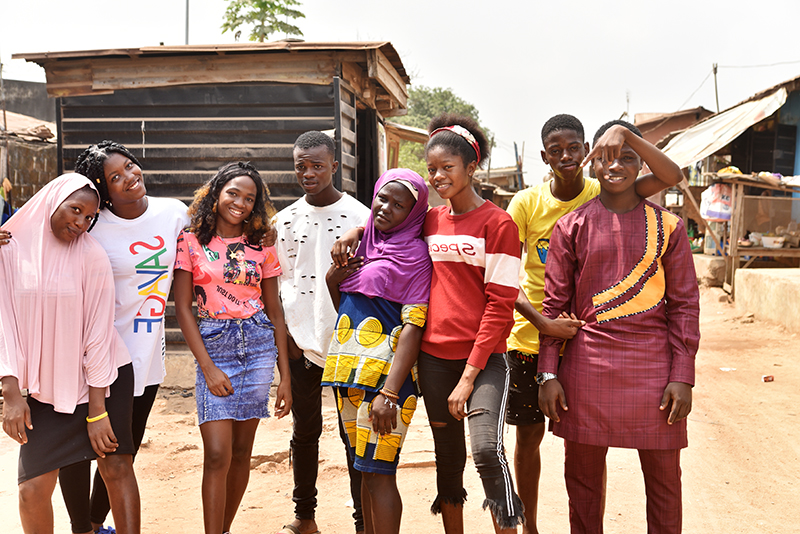Nigeria—Youth-Powered Ecosystem to Advance Urban Adolescent Health
Client: U.S. Agency for International Development
Duration: 2020-2024
Region: Sub-Saharan Africa
Country: Nigeria
Solutions: Economic Growth Global Health
In Nigeria, the growing urban youth population includes an increasingly marginalized segment—adolescents who are out-of-school, unmarried, married, or underprivileged, facing more barriers in accessing accurate, reliable health information as traditional programs have struggled to reach them or meet their needs.
The U.S. Agency for International Development-funded Youth-Powered Ecosystem to Advance Urban Adolescent Health activity empowered young people with skills, social capital, and resources needed to realize their full potential. The program improved adolescent health by increasing access to relevant services within a broader, more holistic context of youth empowerment, coupled with a deeper understanding of the challenges that adolescents face.
The project reached more than 300,000 adolescents through various interventions across the TEENSMATA Youth Hubs that served as safe spaces for adolescents. The project fostered a sense of ownership and agency through the active involvement of the target demographic and in turn, empowering more than 67,000 adolescents with life skills.
Sample Activities
- Establish youth-friendly health services and other social support.
- Support youth leadership training to equip teenagers to advocate for reproductive health services in local policies and budgets.
- Integrate youth-led, human-centered design to ensure that project interventions meet adolescents’ needs.
- Implement social and behavior change activities combined with youth engagement with local policymakers and private sector partners.
- Partner with public and private sector organizations to secure job training placements for poor urban youth, and run mentorship services from the youth centers.
Select Results
- Conducted formative research that explored the characteristics, interests, behaviors, and needs of urban adolescents, ages 15-19.
- Launched six sustainable Youth Hubs, through which trained providers offered family planning counseling to 116,595 adolescents in both the spoke (72,287) and hub (44,308) facilities.
- Reached more than 66,000 adolescents using the locally adapted SKILLZ United curriculum in Lagos and Kano.
- Engaged young people throughout project implementation, particularly by forming the youth advisory committees in Lagos and Kano.
- Trained 234 multi-cadre providers to strengthen capacity in basic contraceptive technology, respectful, youth-friendly counseling, and the commodity logistics management system.
- Strengthened capacity of 842 youth champions in social and leadership skills, who will lead youth advocacy initiatives in their respective communities.
- Successfully integrated hygiene and nutrition into adolescent programming within both states of operation (a key approach for reaching most in-need youths).
- Contributed to international, national, and state policy dialogues, technical working groups, and conferences.

Featured Links
RELATED CONTENT:
Regional—AL-INVEST Next Programme Management Unit and EU-LAC Trade and Investment
The AL-INVEST Next Programme and its EU-LAC Trade and Investment Component promote a more dynamic and sustainable economic relationship between the EU and the countries of Latin America and the Caribbean.
Read More